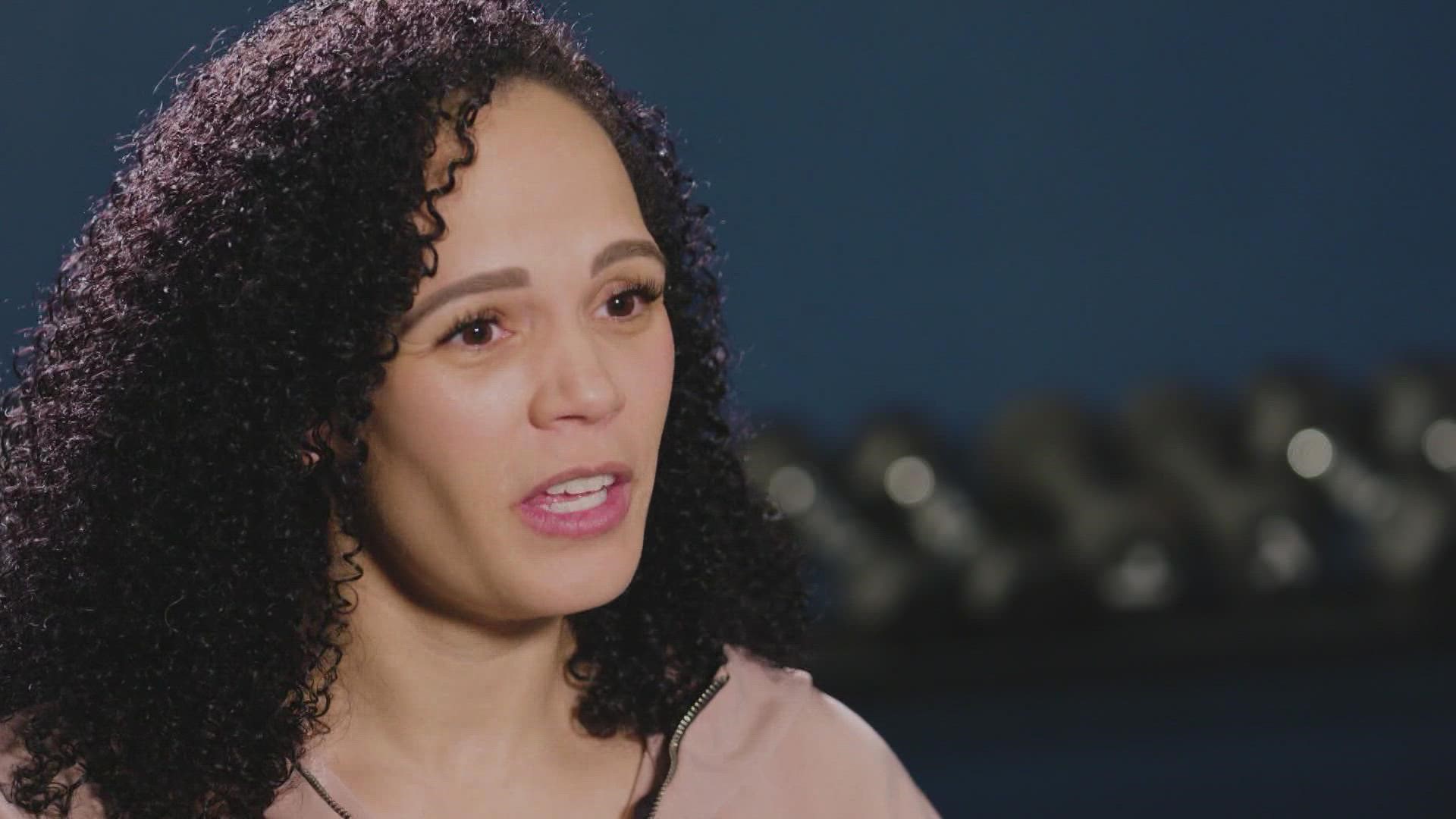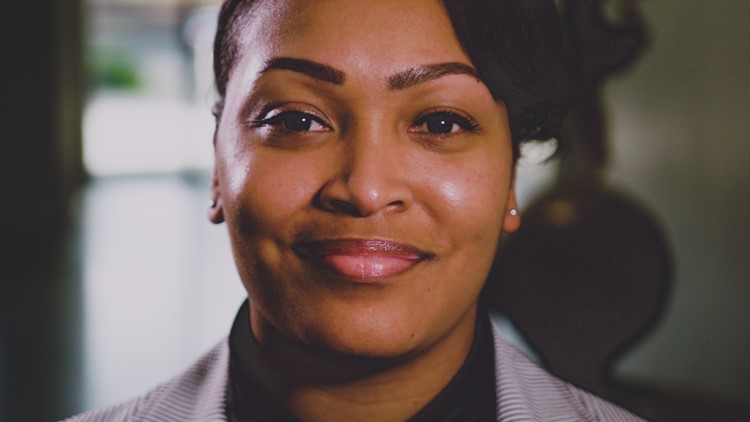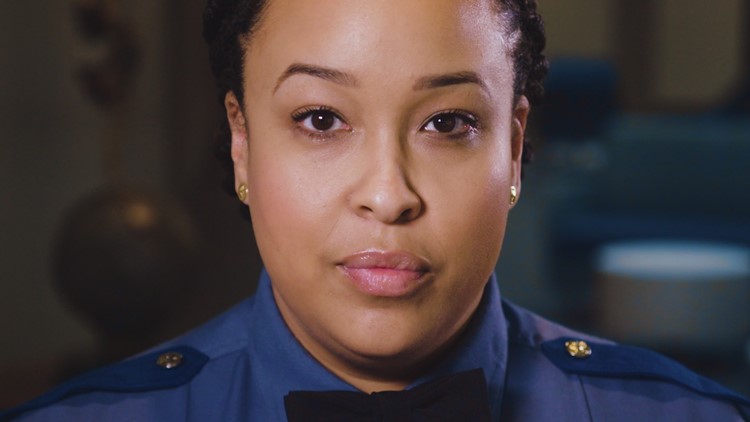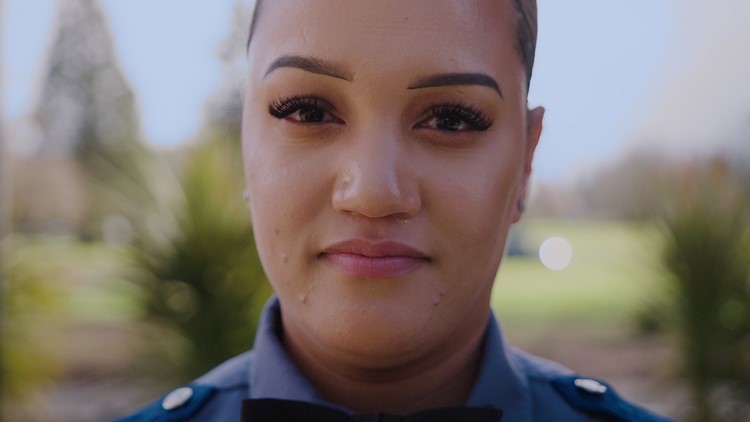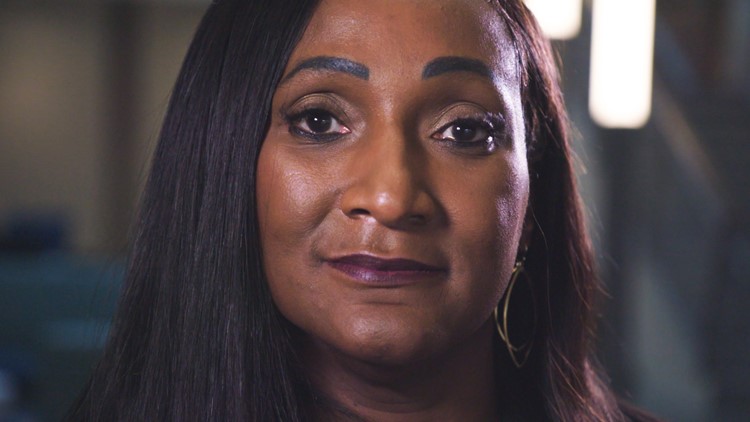OLYMPIA, Wash. — In Washington’s largest law enforcement agency, diversity has been a shortcoming for decades.
Washington State Patrol (WSP) data shows the majority of state troopers are white men, and KING 5’s Facing Race unit found lawmakers and former cadets have called for change within the agency for years.
A new state law looks to change the narrative. In March, Gov. Jay Inslee signed a bill that puts pressure on WSP to attract and retain cadets of color.
The measure will cost the state patrol $1.3 million. It includes the commission of an independent study into retention and recruitment efforts in addition to setting agency benchmarks and providing legislative oversight of WSP’s progress.
Old problem; new push
“I'm proud to work for an agency that is willing to say that publicly, ‘This is a problem, and we're trying to fix it,’” said Sgt. Johnna Batiste, who is part of a group of African American commissioned female troopers that call themselves the "Fab Four." The group includes Troopers Shaneka Phillips, Monica Matthews and Briana Feller.
The four women range in age and experience level. While they work in different specialties, including recruitment and testing, they all say they feel a responsibility to recruit and mentor candidates of color.
Feller joined WSP as a single mother in 2017 and has no family ties to the agency or law enforcement. Matthews, Phillips and Batiste all had family in the military or law enforcement who inspired them to join WSP’s ranks.
Matthews, an Air Force veteran, works as one of four polygraph examiners for WSP. Phillips has been with WSP since 2011 and now works with their Special Operations Division in Olympia. Batiste oversees cadet classes and specializes in control tactics and weapons programs. She is also the daughter of the current WSP chief, John Batiste.
“The State Patrol has been very supportive of allowing us to do more like community outreach type events or just attending different community type of scenarios, just so we can recruit more, and people are getting the visual. Young girls … they're seeing us,” said Phillips.
The Fab Four’s efforts are WSP’s new answer to a very old problem: historically, most Washington State Patrol troopers have been white men.
According to WSP 2021 demographic data, 86% of troopers are white men.
“It's very much a good old boy's club," said Liz Griffin, a former WSP cadet. "And if you don't fit into that good old boy's club mold, what they want you to be, if you don't fit into that club, then you're kind of seen as a threat."
In 2007, Griffin spent nine months in WSP’s training academy as a cadet. Fourteen years ago, Griffin sued the patrol for discrimination, saying she was punished based on her sex and race.
“I was told that I was too smart for my own good," said Griffin. "And I should probably consider another profession. I was the only female of color.
Washington State Patrol's 'Fab Four'
Diversity in 2003 versus 2022
A KING 5 Facing Race analysis of Department of Justice and state data found diversity in the state patrol has declined. Compared with 2003, the patrol now employs fewer Black, Asian and Native American troopers.
“I don't recall seeing any that looked like me," said Griffin. "And that was another reason I wanted to do it was younger people need to see themselves in professions like that."
According to Griffin’s lawsuit, she was at the top of her class and “received consistently excellent performance evaluations.” But doing well, she said, didn't equate to being treated well.
“My badge number was supposed to be 6-6-8. They would refer to me as 'sex sex eight' instead. Being like 'sexy female,'” said Griffin. “When we would do be doing scenarios … we'd be practicing on each other. When it was my turn to be the suspect, they put me in the back of the car, and they'd be like, ‘Well, this is right. This is how it's supposed to be. This is what it really looks like.’”
One week before graduation, Griffin failed a practical exam. A 2009 WSP training manual states cadets should be given "retraining" and a "make-up exam."
Her lawsuit says, "Caucasian male candidates received retraining before retests."
But Griffin didn't get that accommodation. Instead, she was fired.
“I've experienced racism and sexism before," Griffin said. "But this just felt like a bigger blow. Because it ... crushes your dreams, because people, especially little kids, do see police officers like on a pedestal and that they can do no wrong, but it was like, 'Wow, it really is like this.'"
Washington state Sen. John Lovick of District 44, who was a WSP trooper for more than 30 years, said he thinks diversity in the WSP is "absolutely horrible."
“We want to see an agency that reflects the community that we serve,” said Lovick.
Lovick has been pushing WSP leadership to do a better job attracting and retaining diverse candidates.
“This is 2022," Lovick said. "There are only 30 Black troopers, other minorities, but it still has to be a pretty lonely world for most of them.”
Report: Many candidates of color screened out
A 2021 state study into WSP’s retention and recruitment practices showed cadets of color were failing the agency's psychological evaluation at a higher rate than their white counterparts. And there's a lot at stake – if you flunk the psychological evaluation, you're out.
According to data compiled in the report, 36% of white candidates didn't pass WSP’s psychological evaluation compared to 44% of Latinx candidates, 67% of Asian candidates and 60% of Black candidates who didn't pass the psychological examination.
“I think the screening process was obviously a problem. Most agencies, they just don't reject as many people,” said Lovick.
Dr. Daniel Clark, WSP’s longtime psychologist, was the man responsible for administering the tests. Clark faced criticism from lawmakers after that 2021 state report showed candidates of color were rejected from the patrol at high rates. The report found, "Every focus group and multiple key executives reported concerns of bias in the psychological evaluation process."
Clark kept his job. He's been reassigned at the state patrol and now deals with counseling and training.
KING 5 reached out to Clark for comment but has not heard back from him
Griffin was surprised to hear that Clark still had an active role in the WSP.
“Blows my mind," said Griffin. "Like I cannot believe after what was found that he would still have any type of role. That just shows you like there has to be change within the department. To see change, things have to be completely deconstructed and rebuilt from the bottom up."
Griffin doesn’t see that happening.
In 2014, her case was ultimately settled out of court for $20,000 with the agency making no "admissions of liability." After leaving the WSP training academy, Griffin went back into the mental health field. She received her master's in social work and went on to get her doctorate in education.
Griffin said WSP missed out when they discriminated against her.
“[I am] someone who really cares about people, someone who genuinely just wanted to be out there helping individuals,” said Griffin.
State Patrol Chief John Batiste would not answer questions for this story.
But the chief's daughter, Sgt. Batiste, was made available to speak about the efforts of the Fab Four. We asked Batiste if she had experienced discrimination or felt othered within the agency.
“Not othered because of the color of my skin, othered because of my gender," Batiste said. "Yes. I don't think necessarily that color plays a part in that, it just is, you're 5-foot-2 and you're underestimated.”
“The academy has grown so much in diversity. We have a team of pretty diverse recruiters,” said Trooper Feller.
We repeatedly asked for a racial breakdown and photos of the latest WSP Cadet class. Our inquiries were not answered.
“I feel like we have, we still have a lot of work to do,” said Trooper Phillips.
Last year, WSP announced they had signed onto the 30x30 pledge, a nationwide effort within police departments to increase representation in all ranks and promote gender equity. According to the WSP, “The ultimate goal of the 30×30 Initiative is to reach 30 percent of women in police recruit classes by 2030 and to ensure policing agencies are truly representative of the jurisdiction the agency serves. While 30×30 focuses on advancing women in policing, these principles are applicable to all demographic diversity, not just gender.”
The Fab Four said they hope their increased recruitment efforts will steer the agency to better represent the population it serves.
According to a statement provided by WSP, high vacancy rates across all law enforcement agencies have increased competition for candidates of color. They say they continue to modify their hiring and training practices to eliminate any unintended barriers for candidates of color.
Here is the full WSP statement:
“The Washington State Patrol is committed to diversifying our workforce and has been intentional in our efforts to recruit, train and retain qualified individuals that are more reflective of the state and communities we serve. Recognizing that over the years, law enforcement in the United States has been an industry dominated by historical majorities in both race and gender, over the past several years, we have taken numerous steps to bring a focus on diversity, equity, and inclusion into our hiring and operations. We have increased and diversified our recruiting staff as well as substantially increased our intentional outreach to women and communities of color on many fronts. We are also committed to taking down any barriers identified to making working for us an attractive, safe, and satisfying career path for all qualified candidates.
"Part of our process of continuous growth has been to bring in outside consultants to gain their independent evaluation and recommendations for specific systems modifications that would make our agency and our industry more appealing. We take these challenges very seriously and have and are implementing many of their recommendations along with changes generated by our own internal reviews of our recruiting, vetting, hiring, training and deployment strategies. One of the changes we have made occurred in 2021 when our Chief decided it was time for a permanent pivot from in-house psychological testing. That service was moved to outside contractors and Dr. Clark was then able to provide fuller focus and leadership on other programs already under his leadership like the management of our peer support and employee wellness programs and other internal mental health and wellness efforts in addition to critical incident trauma counseling for our staff. As you might imagine given the nature of the work, those efforts are of great importance with continuous demand.
"While we have greatly increased our efforts at outreach to women and communities of color in our recruiting and continue to modify our hiring and training practices to eliminate any unintended barriers to service, we must all recognize that the allure of careers in law enforcement has been significantly dampened in our society over the past several years. With so many agencies now recruiting in the same smaller universe of interested and qualified applicants, our challenges filling the growing number of vacancies continue to grow. We know there are no ‘light-switch’ solutions that will quickly bring significant improvement but we continue to increase our recruitment resources and focus and are aggressively developing strategies and tactics that will hopefully help us improve long-term trust and increase the allure of law enforcement as a career over time in all communities.”

